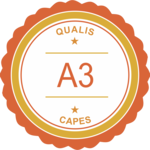Métodos Axiomáticos: a Interpretação Matemática de Lawvere da Lógica de Hegel
DOI:
https://doi.org/10.25247/P1982-999X.2020.v20n3.p206-239Palavras-chave:
Métodos Axiomático. Lawvere. Hegelianismo. Categorias. Homotopia.Resumo
O pensamento axiomático de Hilbert foi um influente modelo filosófico que motivou movimentos como o positivismo no início do século XX, em diversas áreas dentro, e fora, da filosofia, como a epistemologia e a metamatemática. O formalismo axiomático fornece, através do uso da lógica de primeira ordem, uma importante fundação para modelos lógicos formais, o que, para Hilbert, representaria um modelo universal de investigação empírica, não só para a matemática, mas para todas as ciências naturais, e pela visão positivista, também a filosofia. Contudo, no caso mais específico da matemática, existe uma certa descomunicação entre os fundamentos da matemática e sua prática, onde métodos informais, ainda promovem elegantes ferramentas para matemáticos de diversas áreas, inclusive, quando certos paradigmas tentam ser quebrados. É exatamente esta assincronia entre os fundamentos da matemática, e a sua prática que iremos investigar neste estudo. Lawvere, insatisfeito com a “fundação não fundamentada” do método axiomático proposto por Hilbert, e inspirado pela dialética hegeliana, procurou revisar os fundamentos da matemática pela lógica categórica e a Teoria das Categorias. Vemos neste estudo, como as interpretações de Lawvere de conceitos da lógica de Hegel, como, equivalência, unidade dos opostos e “aufheben”, permitem uma nova abordagem matemática, com um posicionamento filosófico que procura, de certa forma, transcender a dicotomia entre escolas analíticas e continentais. Lawvere trata a lógica objetiva de Hegel como uma possível estratégia para resolver o problema de aterramento lógico em metafísica. Por fim, vemos como as contribuições de Lawvere para a axiomatização da lógica categórica tiveram impactos inovadores na metamatemática, especialmente no desenvolvimento das fundações univalentes de Vladimir Voevodsky.
Downloads
Referências
ACZEL, P. AHRENS, B. ALTENKIRCH, T. AWODEY, S. BARRAS, B. BAUER, A. BERTOT, Y. BEZEM, M. COQUAND, T. FINSTER, E. GRAYSON, D. HERBELIN, H. ANDRE, J. LICATA, D. LUMSDAINE, P. MAHBOUBI, A. MARTIN-LÖF, P. MELIKHOV, S. PELAYO, A. SOLOVIEV, S. Homotopy Type Theory: Univalent Foundations of Mathematics. The Univalent Foundations Program. Institute for Advanced Study, Princeton. 2013. Disponível em: https://arxiv.org/pdf/1308.0729.pdf
ALLEN, H. Algebraic topology. Cambridge: Cambridge University Press. p. 185, 2002. ISBN 9780521795401.
BOURBAKI, N. Architecture of mathematics. The American Mathematical Monthly, 57(4), pp. 221–232, 1950.
CANTOR, G. Ueber eine elementare Frage der Mannigfaltigkeitslehre. Jahresbericht der Deutschen Mathematiker-Vereinigung, 1, pp. 75–78, 1892.
CARNAP, R. The Elimination of Metaphysics Through Logical Analysis of Language. Erkenntnis Vol II, 1932.
COHEN, P. J. Set theory and the continuum hypothesis. Mineola, New York: Dover Publications, 2008 [1966]. ISBN 978-0-486-46921-8.
COHEN, P. J. The independence of the continuum hypothesis. Proceedings of the National Academy of Sciences U.S.A., 50, pp. 1143–1148, 1963.
EILENBERG, S. SAUNDERS, M. General theory of natural equivalences. Trans. Amer. Math. Soc. 58, pp. 231-294, 1945. DOI: https://doi.org/10.1090/S0002-9947-1945-0013131-6
GARSON, J. Modal Logic. Stanford Encyclopedia of Philosophy. First published Tue Feb 29, 2000; substantive revision Sat Sep 8, 2018. Disponível em: https://plato.stanford.edu/entries/logic-modal/#PosWorSem
GÖDEL, K. The consistency of the axiom of choice and of the generalized continuum hypothesis. Proceedings of the National Academy of Sciences U.S.A., 24, pp. 556–557, 1938.
GONTHIER, G. Formal Proof—The Four-Color Theorem. Notices of the American Mathematical Society, 55 (11), pp. 1382–1393, 2008. MR 2463991
HEGEL, G.W.F. Science Of Logic. Translated by MILLER, A. V. HUMANITY BOOKS; 2ª Edição, p. 50, 1990.
HEGEL, G.W.F. The Science of Logic [Wissenschaft der Logik], translated by DI GIOVANNI, G. New York: Cambridge University Press, 2010.
HEGEL, G.W.F. The Science of Logic. Translated by George di Giovanni. Cambridge University Press, 2010.
HILBERT, D. Grundlagen der Geometrie. Leipzig, 1899.
HILBERT, D. The new grounding of mathematics. W. Ewald (ed.), From Kant to Hilbert: A Source Book in the Foundations of Mathematics, 2, pp. 1115–1134, 1996.
HILBERT, D. Axiomatic thought. W. Ewald (ed.), From Kant to Hilbert: A Source Book in the Foundations of Mathematics, 2, pp. 1105–1115, 1996.
HILBERT, D. Mathematical problems. Bulletin of the American Mathematical Society, 8(10), pp. 437–479, 1902.
KAN, D. M. Adjoint Functors. Transactions of the American Mathematical Society. 87 (2), pp. 294–329, 1958. doi:10.2307/1993102.
KANT, I. MEERBOTE, R. Attempt to introduce the concept of negative magnitudes into philosophy (1763). In D. Walford (Ed.), Theoretical Philosophy, pp. 1755–1770 (The Cambridge Edition of the Works of Immanuel Kant, pp. 203-206). Cambridge: Cambridge University Press, 1992.
KUNEN, K. Set Theory: An Introduction to Independence Proofs. Elsevier, 1980.
LAWVERE, F.W. Categories of space and quantity. J. Echeverria et al (eds.), The Space of mathematics, de Gruyter, Berlin, New York, pp. 14 – 30, 1992.
LAWVERE, F.W. Cohesive Toposes and Cantor's “lauter Einsen”. Philosophia Mathematica, The Canadian Society for History and Philosophy of Mathematics, Series III, Vol. 2, pp. 5-15, 1994.
LAWVERE, F.W. Comments on the Development of Topos Theory. Development of Mathematics 1950-2000, J.-P. Pier (Ed) Birkhäuser Verlag, Basel, pp. 715-734, 2000.
LAWVERE, F.W. ROSEBRUGH, R. Sets for Mathematics. Cambridge University Press, 2003.
LAWVERE, F.W. Some thoughts on the future of category theory. In: Carboni A., Pedicchio M.C., Rosolini G. (eds) Category Theory. Lecture Notes in Mathematics, vol 1488. Springer, Berlin, Heidelberg, 1991.
LAWVERE, F.W. Taking categories seriously. Reprints in Theory and Applications of Categories, 2, pp. 1 – 24, 2005.
LAWVERE, F.W. Tools for the advancement of objective logic: closed categories and toposes. J. Macnamara and G.E. Reyes (Eds.), The Logical Foundations of Cognition, Oxford University Press 1993 (Proceedings of the Febr. 1991 Vancouver Conference “Logic and Cognition”), pp. 43–56, 1994.
LEWIS, D. Counterfactuals. Blackwell Publishers, Massachusetts, USA, 1973.
PEIRCE, C. S. On the Logic of Number». American Journal of Mathematics. 4, pp. 85–95, 1881. doi:10.2307/2369151
REICHENBACH, H. The Rise of Scientific Philosophy. Berkeley & Los Angeles: University of California Press, p. 72, 1951.
RODIN, A. Axiomatic Method and Category Theory. 2012. DOI 10.1007/978-3-319-00404-4. https://arxiv.org/pdf/1210.1478.pdf
RUSSELL, B. The philosophy of logical atomism. The Monist, 28, pp. 495–527, 1918.
SULLIVAN, A. Logicism and the Philosophy of Language: Selections from Frege and Russell. Broadview Press, Logic As The Essence Of Philosophy, p. 277, 2003. ISBN-13: 978-1551114712
VOEVODSKY, V. A. Univalent foundations. Mathematisches Forschungsinstitut Oberwolfach, Mini-Workshop: The Homotopy Interpretation of Constructive Type Theory, Report N 11/2011, p. 7–10, 2011.
WIGNER, E. P. (1960). The unreasonable effectiveness of mathematics in the natural sciences. Richard Courant lecture in mathematical sciences delivered at New York University, Communications on Pure and Applied Mathematics, 13, pp. 1–14, 1959. DOI:10.1002/cpa.3160130102.
ZERMELO, E. Untersuchungen über die Grundlagen der Mengenlehre I. Mathematische Annalen. 65, pp. 261–281, 1908. doi:10.1007/BF01449999
Downloads
Publicado
Edição
Seção
Licença
Você tem o direito de:
- Compartilhar — copiar e redistribuir o material em qualquer suporte ou formato para qualquer fim, mesmo que comercial.
- Adaptar — remixar, transformar, e criar a partir do material para qualquer fim, mesmo que comercial.
- O licenciante não pode revogar estes direitos desde que você respeite os termos da licença.
De acordo com os termos seguintes:
- Atribuição — Você deve dar o crédito apropriado , prover um link para a licença e indicar se mudanças foram feitas . Você deve fazê-lo em qualquer circunstância razoável, mas de nenhuma maneira que sugira que o licenciante apoia você ou o seu uso.
- Sem restrições adicionais — Você não pode aplicar termos jurídicos ou medidas de caráter tecnológico que restrinjam legalmente outros de fazerem algo que a licença permita.
Avisos:
Você não tem de cumprir com os termos da licença relativamente a elementos do material que estejam no domínio público ou cuja utilização seja permitida por uma exceção ou limitação que seja aplicável.
Não são dadas quaisquer garantias. A licença pode não lhe dar todas as autorizações necessárias para o uso pretendido. Por exemplo, outros direitos, tais como direitos de imagem, de privacidade ou direitos morais , podem limitar o uso do material.
















